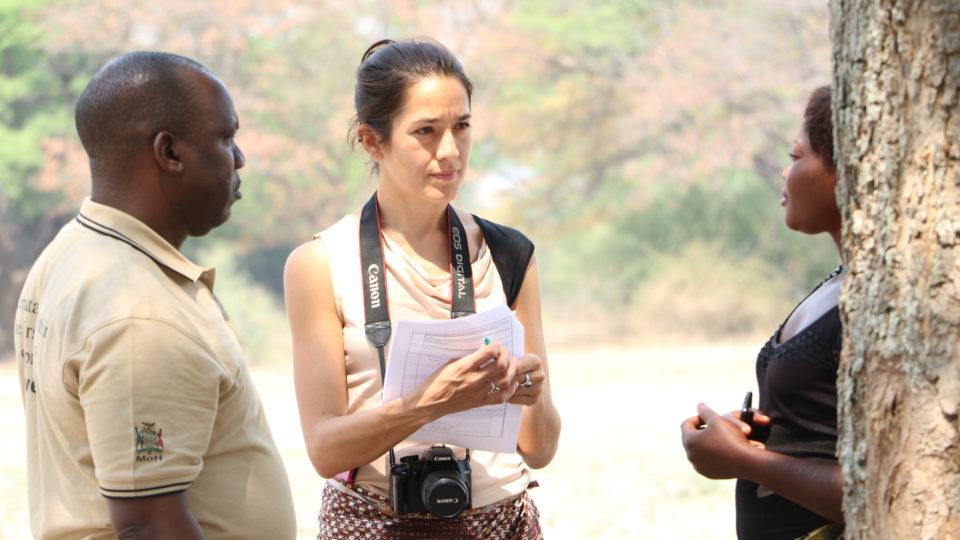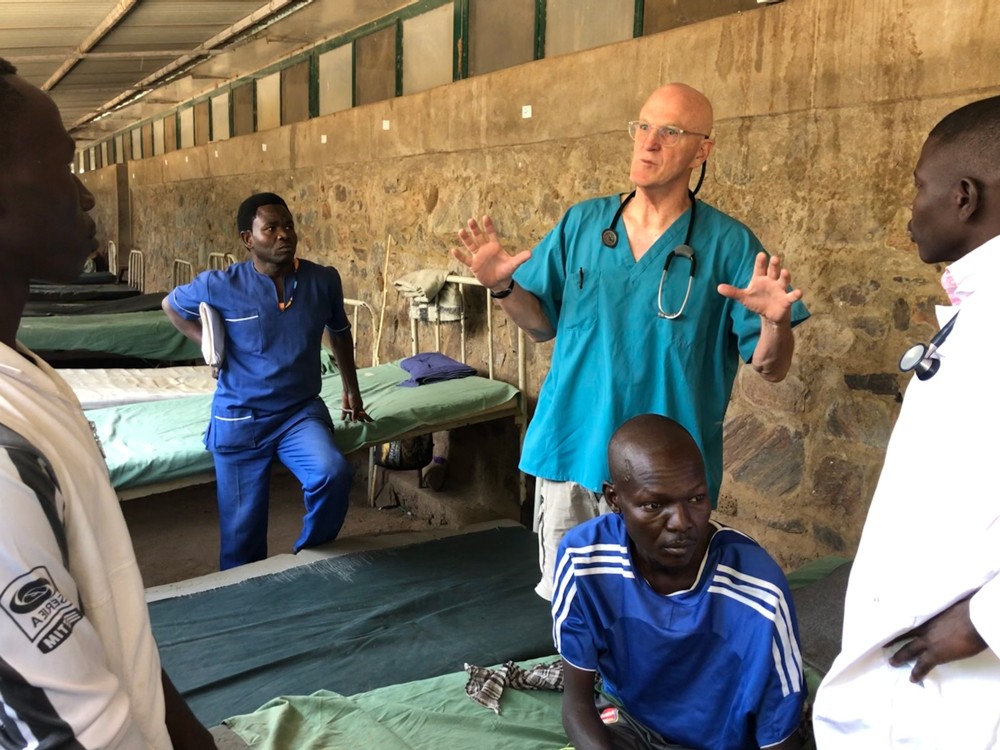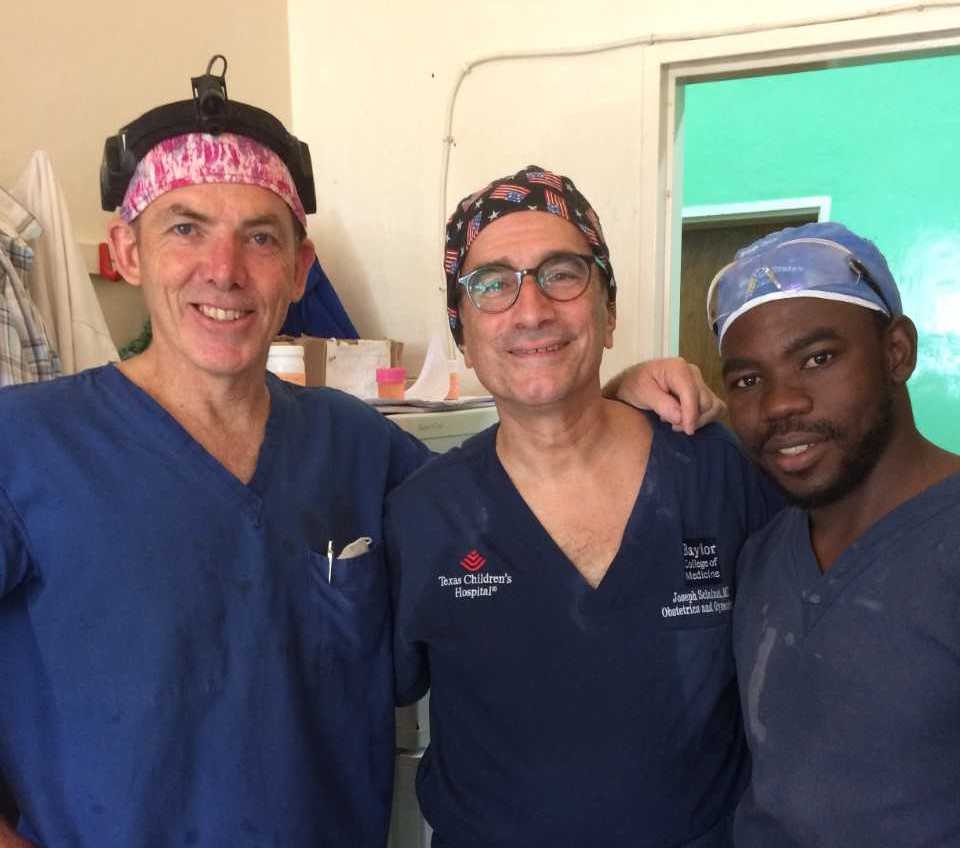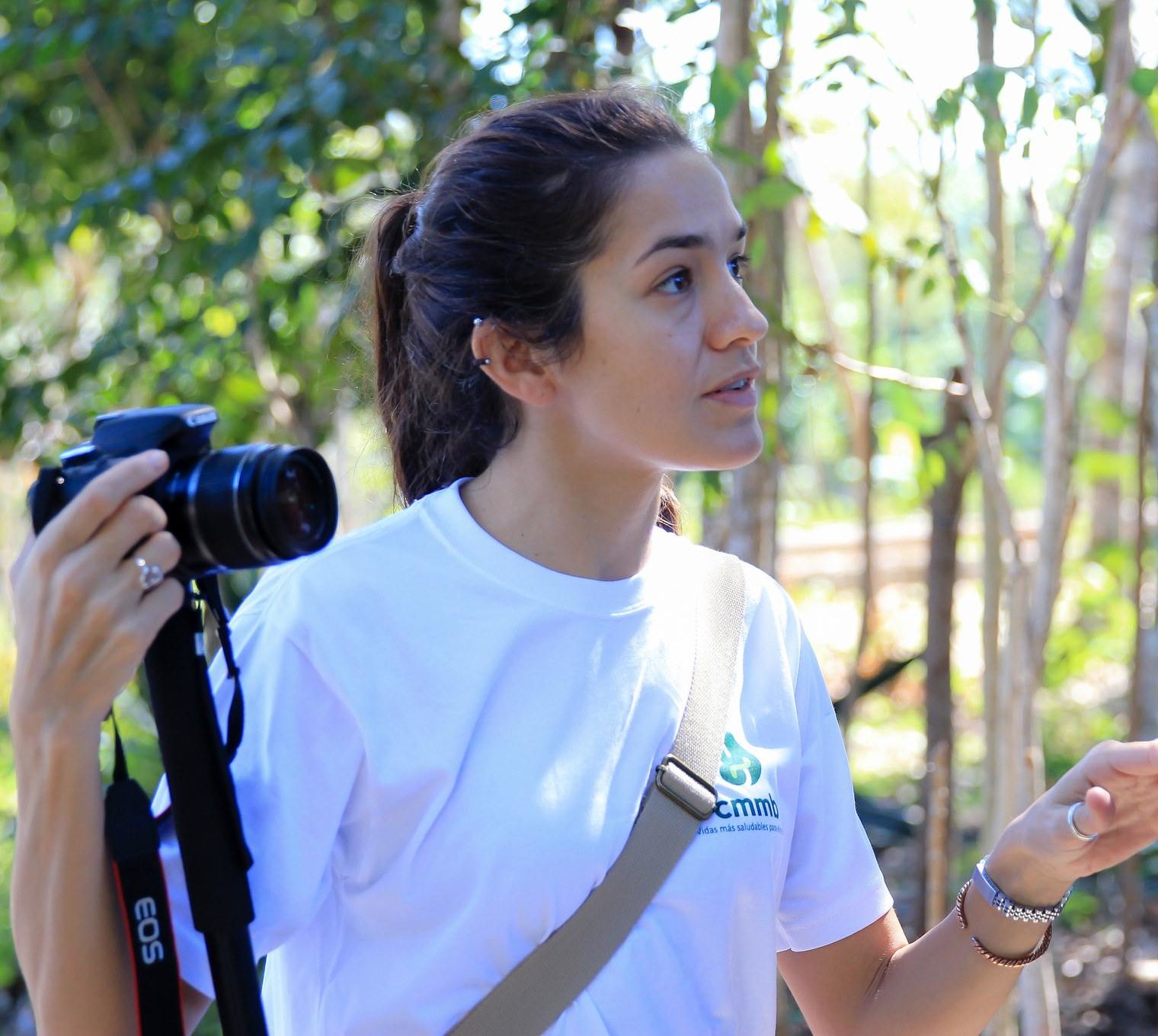Looking Back and Building Forward: Adapting CMMB’s Volunteer Program during COVID-19

Marcia Grand Ortega, Manager of CMMB’s Volunteer Program, reflects on the challenges and opportunities for international volunteering during the past year of COVID-19.
The Pandemic Hits
Back in February 2020, an exceptional cohort of medical professionals spent three days at CMMB’s headquarter in New York, participating in sessions on field organizational strategy, partnership, cross-cultural communication, safety, security, and more. They were preparing for upcoming, six-month deployments to Kenya, Sudan, South Sudan and Zambia. Little did we know that the COVID-19 pandemic would upend international volunteering—and life as we knew it.
“I left for Sudan on March 3rd, and two weeks later, the world turned upside down,” said Dr. Mike Pendleton, a family physician and CMMB volunteer. “Everything shut down in the U.S., and all of the sudden there was discussion about this particular virus invading virtually every place in the world.”
“The world turned upside down.”
Not long after Dr. Pendleton’s departure, CMMB formed a task force to track the developments around the novel coronavirus. With the first cases reported in New York, CMMB’s corporate travel became limited to only essential travel. Soon after, the task force joined together on Zoom from our separate homes to discuss the best way to keep our volunteers and local colleagues safe.
Some volunteers, hearing very little about this new virus in the communities they were serving, thought that they would be safe or could choose to return later. However, by the end of March, national borders closures forced the volunteers to return. Within four weeks, 15 field volunteers were repatriated from Kenya, South Sudan, Zambia, and Peru. There was a sense of sadness and guilt for leaving their colleagues abroad in a time of such need.
Creating New Avenues
In the weeks to follow, discussions with CMMB’s country programs leadership focused on business continuation plans, gaps in information, and the anxiety that the pandemic was inducing on our staff as they adapted in diverse ways to continue delivering on our mission.
For CMMB’s Volunteer Program team, the inability to continue deploying medical and public health professionals pushed us to think of new ways for volunteer experts to contribute despite the pandemic. That is how we realized that it was possible for experts to support our Program teams virtually.
The remote component of CMMB’s Volunteer Program was created to provide opportunities for medical and public health students, as well as professionals, to support country team’s response efforts without leaving home—and by engaging in well-defined projects.
Both the opportunities and needs were great.
Responding to Demand
CMMB’s Volunteer Program team first assessed the demand for virtual support. Preliminary discussions were held with program managers in the countries where we work to understand new challenges, needs, and capacity. We heard calls for technical support and education on the effects of COVID-19 on maternal health, malaria, clean water, nutrition, and infection prevention and control. There was great need for information, education, and communication (IEC) and building resilience for healthcare workers.
Dr. Joseph Sclafani, an OB/GYN and CMMB volunteer, was the first educator to host a live webinar training on maternal health and the effects of COVID-19. “We realized that there was an enormous need for staff education in CMMB hospitals to adequately prepare for the ensuing pandemic,” said Dr. Sclafani. “The medical teams sought guidance in the best practices to treat COVID-19 infected mothers and their newborn babies. We also needed to redesign the hospital and maternity clinics to minimize the infection risk to the medical and nursing staff and to other patients.”
“The resilience training was timely and important against the backdrop of decades of political and communal conflicts in South Sudan.”
As part of the burgeoning program, volunteers led a Building Resiliency seminar series. The series started with trainings on spiritual practices and self-care for program managers. “The resilience training was timely and important against the backdrop of decades of political and communal conflicts in South Sudan that have eroded trust and left most people living on the edge, in terms of mental health,” said Jacqueline George, Country Director of CMMB South Sudan.
With the support of volunteers in these new service activities, the Staff Development and Training program had kicked off.
Coming Out Stronger
For the last few months, our returned medical volunteers have been getting vaccinated, and their desire to return to the field fills us with hope. U.S. airlines returned to carrying millions of passengers daily. With these positive developments, CMMB has begun assessing applicants to resume field deployments.
The programs that were created during the pandemic will continue, bringing new avenues to strengthen health systems and build the capacity of our staff moving forward. In light of ongoing discussions about decolonializing and localizing global health, CMMB’s Volunteer Program team believes these new service opportunities will build a stronger, more impactful program.
Volunteers will not only be back in the field making an impact, but also contributing to capacity building remotely, increasing the pool of professionals available to help, and reducing the burden on our colleagues.
Together, we will come out of COVID-19 stronger.


